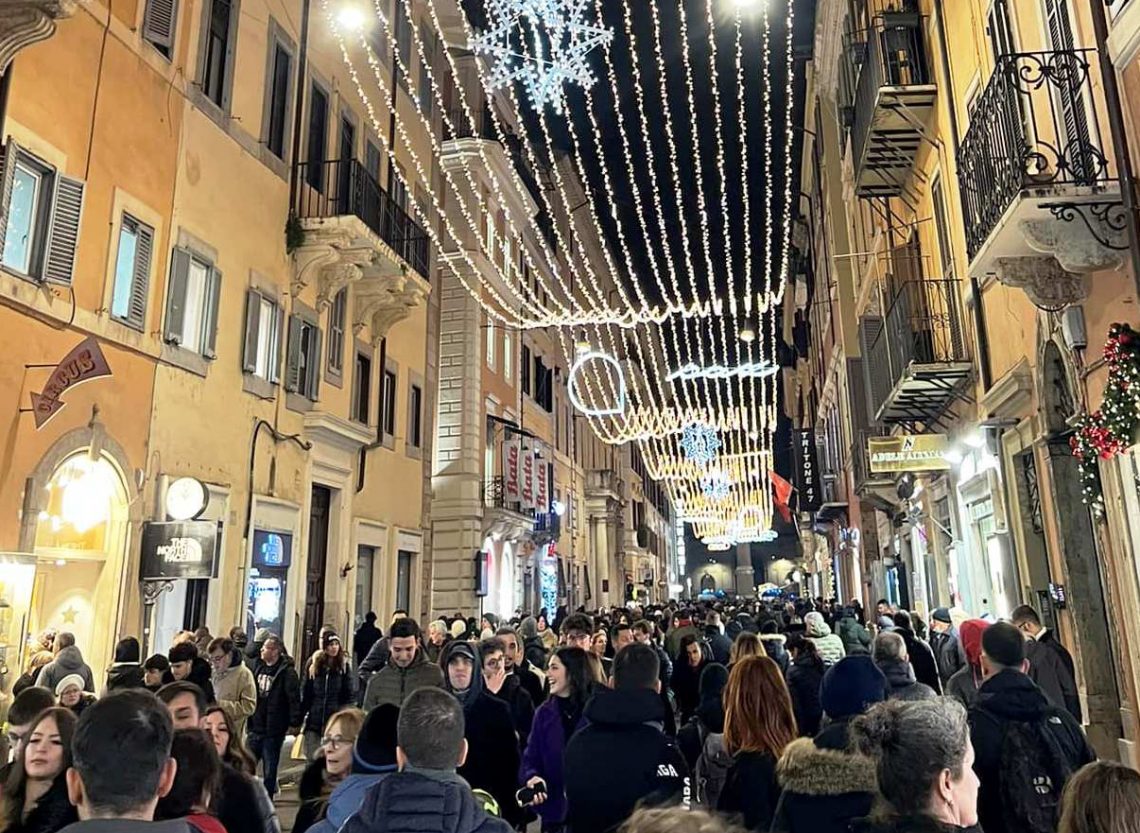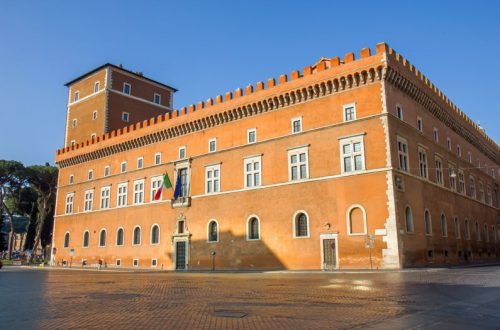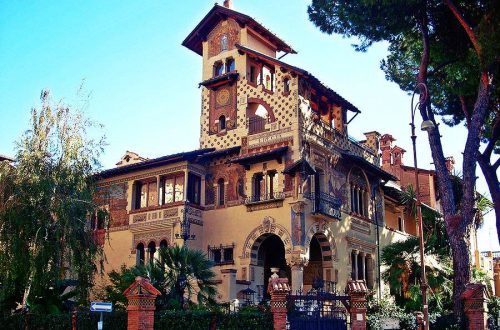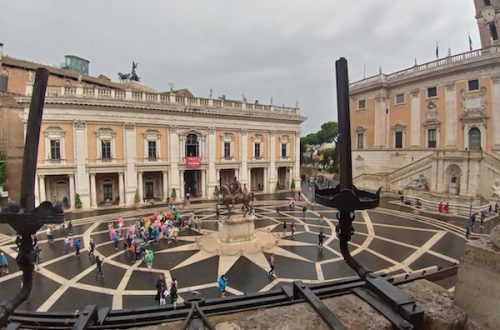
Via del Corso
Via del Corso, whose name translates to “Corso Street” in English, has a rich history that dates back to ancient times. Originally, it was part of the ancient Roman road known as the Via Flaminia, which connected Rome to the Adriatic Sea. The section that is now Via del Corso served as the northernmost boundary of the Campus Martius, an open area in ancient Rome used for military training, elections, and various public activities.
During the Middle Ages, Via del Corso evolved into a bustling commercial thoroughfare, lined with shops, inns, and workshops. The street became an important artery in the city, connecting the historic center of Rome with the northern part of the city and beyond.
In the Renaissance period, many noble families built palaces along Via del Corso, contributing to its architectural splendor. These palaces reflected the wealth and power of the Roman aristocracy and featured elegant facades and ornate interiors.
One of the most significant landmarks along Via del Corso is the Column of Marcus Aurelius, which was erected in the 2nd century AD to commemorate the military victories of Emperor Marcus Aurelius. The column stands tall in Piazza Colonna, near the southern end of Via del Corso, and is adorned with intricate reliefs depicting scenes from the emperor’s campaigns.
Over the centuries, Via del Corso has witnessed numerous historical events, including processions, festivals, and political demonstrations. It has also undergone various renovations and transformations to accommodate the changing needs of the city.
Today, Via del Corso remains one of Rome’s busiest and most vibrant streets, beloved by locals and tourists alike for its shopping, dining, and cultural attractions. Its rich history, architectural treasures, and lively atmosphere continue to make it a must-visit destination for anyone exploring the Eternal City.
Via del Corso is one of the most famous streets in Rome, Italy. Here’s an overview of what you can expect to find along Via del Corso:
- Shopping: Via del Corso is renowned for its shopping opportunities. The street is lined with a wide variety of shops, ranging from high-end boutiques and fashion retailers to souvenir stores and department stores. You can find everything from clothing, shoes, and accessories to jewelry, cosmetics, and leather goods.
- Historical Landmarks: As you walk along Via del Corso, you’ll encounter several historical landmarks and points of interest. These include the Column of Marcus Aurelius, a monumental column adorned with intricate reliefs depicting scenes from the emperor’s military campaigns. You’ll also pass by the Church of Saint Ignatius of Loyola at Campus Martius, known for its stunning Baroque architecture and ceiling frescoes.
- Palaces and Architecture: Via del Corso is lined with elegant palaces and buildings, many of which date back centuries. These architectural gems add to the street’s charm and provide a glimpse into Rome’s rich history. Keep an eye out for Palazzo Doria Pamphilj, a grand palace that houses an art gallery with works by renowned artists such as Velázquez, Caravaggio, and Raphael.
- Restaurants and Cafés: Along Via del Corso, you’ll find plenty of opportunities to indulge in Italian cuisine. There are numerous restaurants, trattorias, and cafés where you can enjoy traditional Roman dishes, pizza, pasta, gelato, and more. Whether you’re looking for a quick bite or a leisurely meal, you’ll find plenty of options to satisfy your appetite.
- Street Performers and Entertainment: Via del Corso is often bustling with activity, especially during peak tourist seasons. You may encounter street performers, musicians, and artists showcasing their talents along the street. These lively performances add to the vibrant atmosphere of the area and provide entertainment for visitors and locals alike.
Overall, Via del Corso offers a mix of shopping, dining, sightseeing, and entertainment experiences that make it a must-visit destination in Rome. Whether you’re interested in exploring its historical landmarks, indulging in retail therapy, or simply soaking up the lively atmosphere, Via del Corso has something for everyone.
![]()


You May Also Like

Palazzo Venezia
8 January 2024
Quartiere Coppedè
26 August 2023